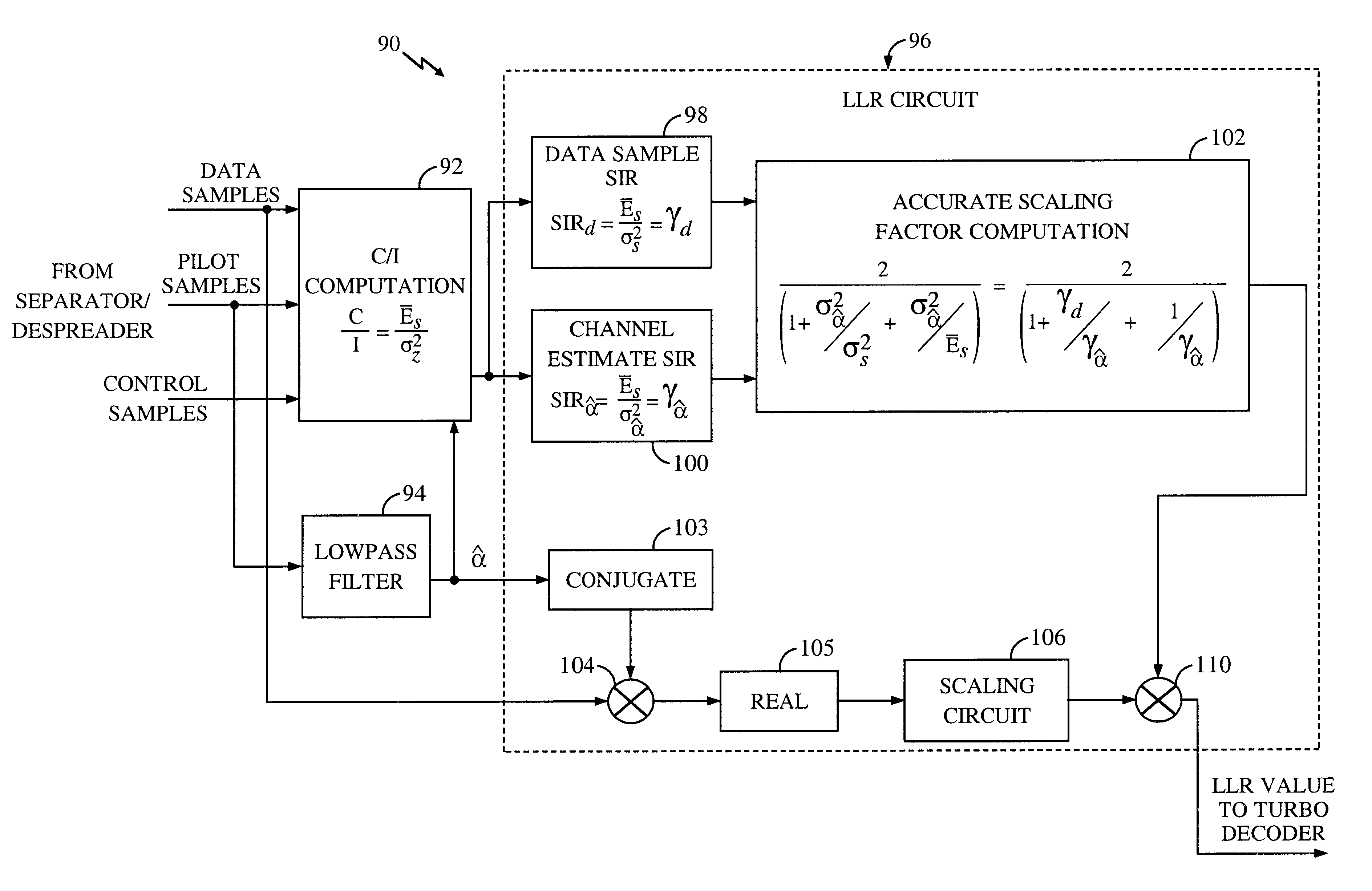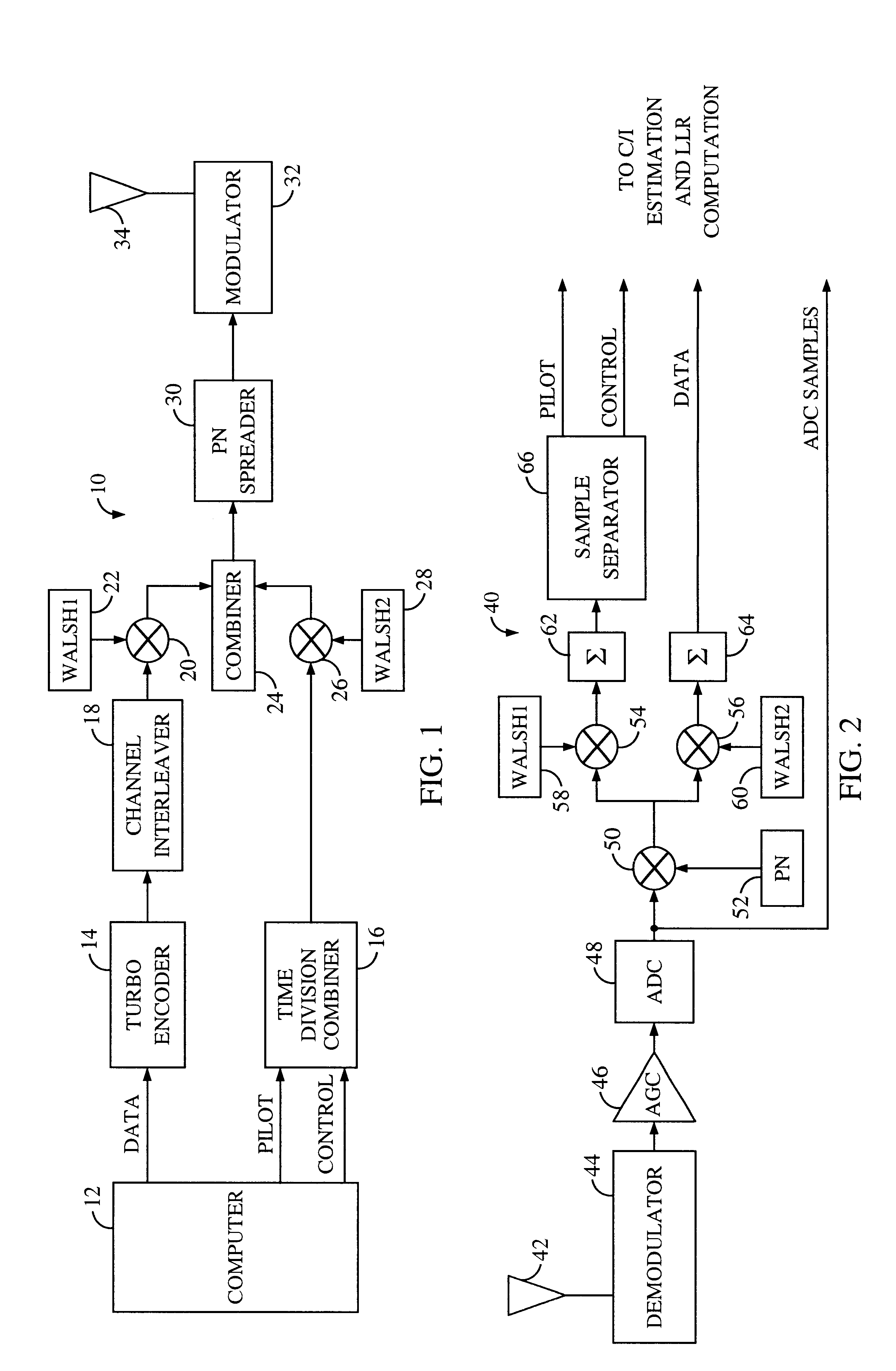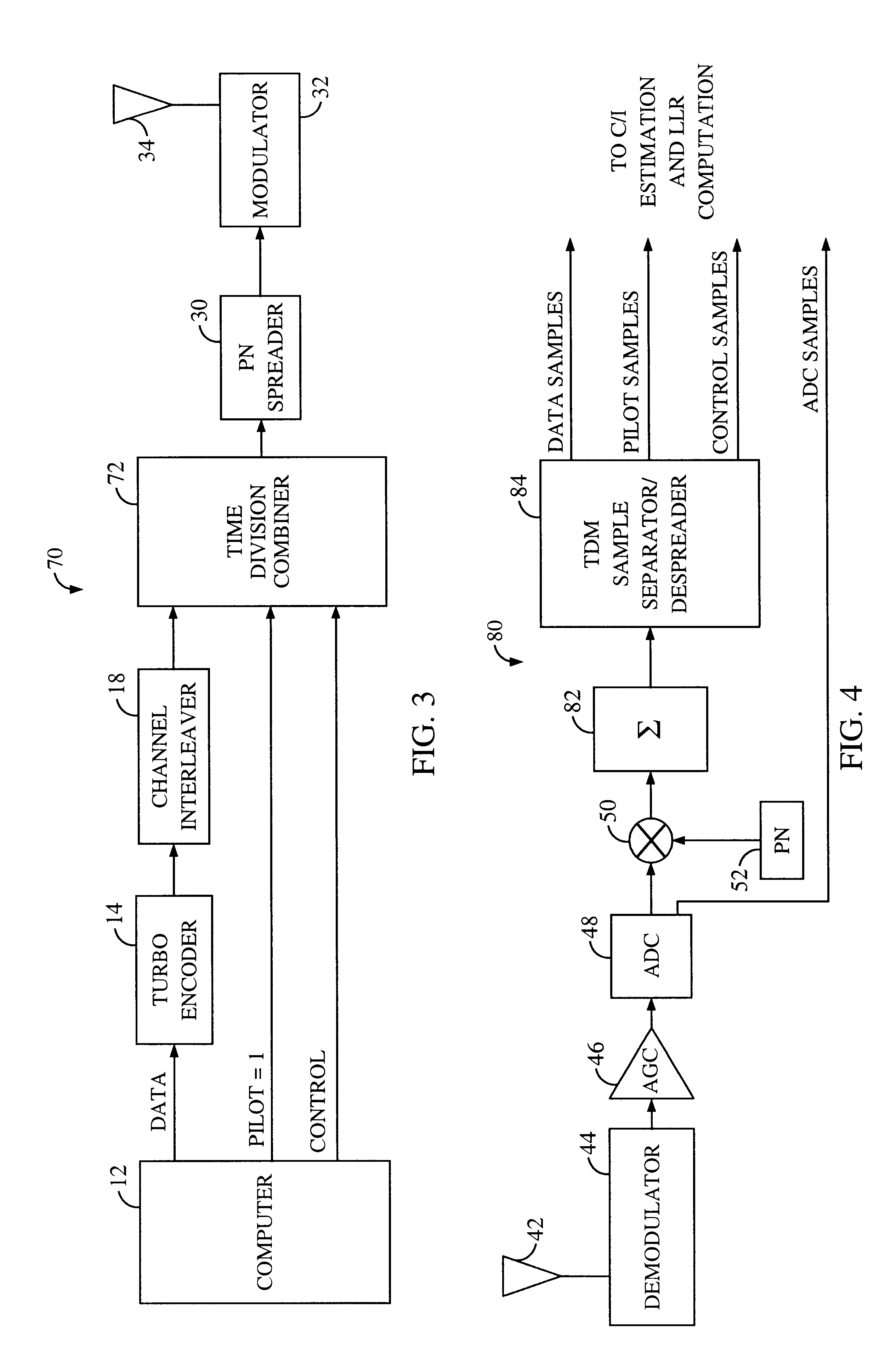System and method for performing accurate demodulation of turbo-encoded signals via pilot assisted coherent demodulation
a technology of coherent demodulation and turbo-encoded signals, applied in the field of communication systems, can solve the problems of increasing the power of transmitted signals, increasing interference to other mobile devices, and being impractical in many applications
- Summary
- Abstract
- Description
- Claims
- Application Information
AI Technical Summary
Problems solved by technology
Method used
Image
Examples
Embodiment Construction
While the present invention is described herein with reference to illustrative embodiments for particular applications, it should be understood that the invention is not limited thereto. Those having ordinary skill in the art and access to the teachings provided herein will recognize additional modifications, applications, and embodiments within the scope thereof and additional fields in which the present invention would be of significant utility.
FIG. 1 is a diagram of a code division multiplexing (CDM) transmitter 10 constructed in accordance with the teachings of the present invention. For clarity, various details of the transmitter have been omitted from the drawings such as timing circuitry, filters, and amplifiers. The omitted circuitry is easily constructed an implemented by those having ordinary skill in the art.
The transmitter 10 includes a computer 12 that includes transmitter software executed via a baseband processor (not shown) within the computer 12. The computer 12 is ...
PUM
 Login to View More
Login to View More Abstract
Description
Claims
Application Information
 Login to View More
Login to View More - R&D
- Intellectual Property
- Life Sciences
- Materials
- Tech Scout
- Unparalleled Data Quality
- Higher Quality Content
- 60% Fewer Hallucinations
Browse by: Latest US Patents, China's latest patents, Technical Efficacy Thesaurus, Application Domain, Technology Topic, Popular Technical Reports.
© 2025 PatSnap. All rights reserved.Legal|Privacy policy|Modern Slavery Act Transparency Statement|Sitemap|About US| Contact US: help@patsnap.com



